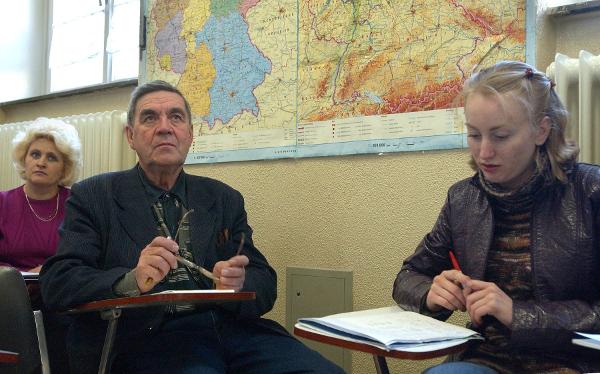Source

Source: picture-alliance / dpa (c) ZB - Special
Ethnic German remigrants from Eastern Europe, so-called Spätaussiedler, constitute a special category of immigrants. Ethnic German remigrants are persons of German descent from the states of the former Soviet Union or Eastern Bloc who moved to Germany to escape ethnic discrimination. If their status as Spätaussiedler is confirmed, they may acquire German citizenship. Many ethnic German remigrants only speak a little bit of German, and their non-German relatives and children usually have no knowledge of the language at all. While the number of Spätaussiedler has steadily declined since the mid-1990s, there has been a proportional increase in the number of non-German (i.e., non-German speaking) relatives accompanying them to Germany. This has led to considerable integration problems. Thus, on January 1, 2005, basic German language competency became a condition for the admission of the non-German relatives of ethnic German remigrants. This photo shows Russian Spätaussiedler of various ages at a German course in the admission camp Berlin-Marienfelde in January 2003.

Source: picture-alliance / dpa (c) ZB - Special